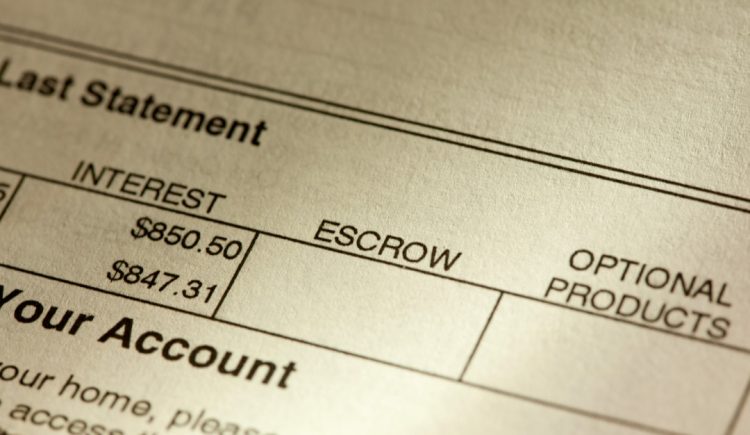If you own a home, you’ll have to pay property taxes and homeowners insurance premiums. Under some circumstances, you may be required to have an escrow account to manage those expenses. In other cases, you may be able to pay those bills yourself, but you may decide that you’d prefer to have an escrow account.
What Is an Escrow Account?
An escrow account is an account that’s managed by a third party and holds funds to be used for a transaction between two other parties. If you take out a mortgage, your lender or loan servicer can add a portion of your property tax bill and homeowners insurance premiums to your monthly payment amount. Those funds can be put into an escrow account, and the lender or servicer can pay the tax and insurance bills on your behalf when they’re due.
If you take out a mortgage and put down less than 20%, your lender may require you to have an escrow account. If you make a larger down payment, you may get to decide whether to have one.
Why Might You Want an Escrow Account?
Property taxes and homeowners insurance premiums can be thousands of dollars and are typically charged in lump sums. If you’re not good at budgeting, you might find yourself facing a large bill that you can’t pay.
With an escrow account, you won’t have to worry about that. You will be required to pay part of those expenses every month, which will force you to work those costs into your budget.
The amounts you will be charged for taxes and insurance every month will be based on estimates. If the actual amount you owe turns out to be more than the amount in escrow, your lender or loan servicer might temporarily cover the difference, then adjust your monthly payments accordingly.
An escrow account might save you money. Some lenders offer customers with escrow accounts lower interest rates or reduced closing costs.
Why Might You Decide Not to Get an Escrow Account?
If money for taxes and insurance is collected every month along with your loan payments, you won’t be able to use those funds for another purpose. If you can earn a significant return by investing that money, you might decide that that’s a better option than putting money into escrow.
When an escrow account is set up at closing, the homebuyer is often required to pay a chunk of the property tax bill and homeowners insurance premiums up front. That can be thousands of dollars. It might be tough to cover that cost if you’re already stretched thin with other closing costs and a down payment.
Paying extra for taxes and insurance each month might make it difficult to budget for other expenses. Of course, you will have to pay for taxes and insurance at some point, but if your income fluctuates from month to month, you might prefer to pay your taxes and insurance at a time when your earnings are higher.











